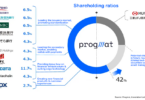The Bank for International Settlements (BIS) published a paper on the financial stability risks of crypto-assets in emerging markets, based on input from central banks in the Americas. Many of the crypto risks have been explored before, but there are additional factors in emerging markets.
Crypto can lead to currency substitution
These include additional threats of currency substitution using crypto, and the fact that emerging markets tend to have more triggers, such as domestic currency devaluation or other events which might drive crypto adoption.
Devaluation is often triggered by inflation and crypto-assets are perceived as having less inflation risks. Plus political instability might mean fiat currency risks are associated with the person currently in power in the country.
One specific example mentioned is El Salvador, where businesses have been required to accept Bitcoin payments since 2021. According to the report, a year later a fifth of the population had used the Chivo Wallet, but mainly to claim the $30 incentive. And the $100 million in Bitcoin bought by the government was worth half that amount.
Another example substitution is when crypto exchanges provide cards enabling clients to pay bills using crypto. In that case the crypto is converted to fiat currency in real time at the point of payment.
Crypto can circumvent capital controls
Weak domestic currencies sometimes coexist with capital controls to prevent capital flight. That’s something that’s harder to prevent with crypto, and there’s the added feature of transactions being pseudonymous. Unlike bank accounts that require identification, creating a wallet for p2p payments requires no registration.
Additionally, crypto is increasingly being used for remittances because it’s viewed as a faster, cheaper way to make cross border payments.
The paper explored the oft-mentioned crypto risks, including fraud, lack of investor protections and the centralization at exchanges, which leads to market and liquidity risks. Credit risks result from related party transactions, excessive leverage and lack of sound governance. Additionally, blockchain comes with particular cyber security risks around smart contracts and protecting wallets leading to operational risks.
The paper also investigates the transmission mechanism in which these risks could impact the stability broader financial system. The final section explores policy approaches, including the previously highlighted options of an outright ban, containment or regulation as highlighted in a January BIS report.






